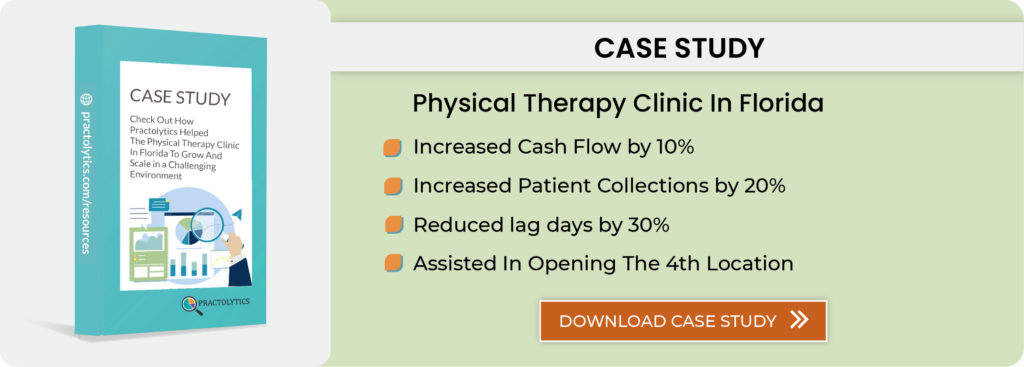Why Patients Should Challenge Claims Denials and How to Get Started
Claims denials are a common and major concern most Americans encounter, yet only a few stand up to them even with positive outcomes. A recent survey by the Commonwealth Fund indicates that about half of adults who challenged coverage denials made effective shifts in attaining approval for some or all of the denied services. This outlines a major opportunity for patients to oversee for themselves and secure proper coverage.
Table of Contents
The Hidden Struggle with Claims Denials
Nearly half of working-age adults insured in the U.S. state received a co-payment or medical bill for services they expected to be covered by their insurance. Despite this, only a fraction of those denied claims attained coverage for a doctor-recommended service challenged such decisions. This inaction is mainly caused by unawareness about patient rights and misunderstanding during claims processing.
The survey outlined that fewer than half of those encountering billing mistakes or coverage denials took action to challenge them, majorly because of unawareness. Interestingly, those who challenged these denials found that it often paid off. About 50% of adults who took part in claims submission witnessed success in getting some or all denied services approved. Around 38% of those disputing medical bills managed to minimize or alleviate their balances.
For Medicare and Medicaid beneficiaries, success rates are much higher with 48% of Medicaid recipients and 61% of Medicare attaining reductions or eliminations of their bills post-challenging. These statistics indicate that challenging denied claims can be highly efficient even though most patients leave out on this opportunity due to a lack of awareness or confidence in exploring the system.
Barriers to Challenging Claims Denials
So, why are so many people reluctant to challenge denials? The Commonwealth Fund survey indicates a major gap in awareness and knowledge. Over half of those who were a part of billing errors stated that they were unsure what they could do. This uncertainty was mostly prevalent among people with low or moderate incomes, people aged under 50, and Hispanic respondents.
Younger adults of the age group 19 to 34 were most likely to be not aware of their rights, with 60% not knowing how to challenge a denied bill. Furthermore, those below 50 years were also most likely unsure about whom to contact to acknowledge the billing faults. This lack of understanding or clarity along with no guidance leaves many patients feeling discouraged and powerless to take proper action
The Consequences of Not Challenging Denials
The consequences of not challenging claims denials are hefty. Coverage denials lead to care delays for nearly 60% of unaffected and 47% of worsened health conditions. This outlines the urgent necessity for major awareness and action in acknowledging claims denials
Addressing the Issue: Policy Changes and Patient Advocacy
To enhance consumer protection and minimize the occurrence of claims denials, several policy interventions could be employed. The Department of Health and Human Services, for instance, could better refine the necessities of the Affordable Care Act by overseeing denial rates throughout commercial insurance initiatives, including those offered via marketplaces, group initiatives, and individual markets.
It is also necessary to penalize insurers who repeatedly deny insurance coverage or erroneous billing, along with public reporting of such instances, cultivating greater accountability and incentivizing insurers to enhance their practices. Improving state or federal consumer info systems and establishing consumer aid systems could increase public awareness of patients’ rights to appeal for insurance decisions and ease the process.
The Role of Practolytics in Navigating Claims Denials
Healthcare providers and insurers are crucial in educating patients on their rights and aiding them in exploring the complicated terrain of the healthcare insurance system. This is where Revenue Cycle Management partners like Practolytics make a difference. By delivering expertise in healthcare RCM, Practolytics supports patients and healthcare providers with a clear view of claims processing, identifying mistakes, and effectively challenging denied claims. This not only enhances patient outcomes but also brings in fair compensation for healthcare providers for the services they offer.
Trends in Claims Denials: A Growing Concern
The concern of claims denials isn’t going anywhere soon. Following a national survey held by Premier, almost 15% of all claims submitted to private payers are primarily denied, even those with proper prior authorizations. While more than 54% of those rejected claims are ultimately covered, many others weren’t pursued fully due to a lack of resources and complexities.
Denials are common high-cost treatments, with average denial linked with charges adding up to $14,000 or more. This trend oversees the patient’s need to be vigilant and proactive in challenging the denials to eliminate unnecessary financial loads.
Taking Action: How to Challenge a Denied Claim
Review Your Explanation of Benefits or EOB: Have a clear view of why the claim was rejected. The EOB should give a reason, like lack of coverage or insufficient information.
Gather Documentation: Gather all documents including doctor’s notes, medical records, and correspondence with the insurer.
Contact Your Insurance Company: Communicate with a representative to understand the rejection and ask for a detailed explanation.
File an Appeal: Follow the steps highlighted by the health insurance company to file a formal appeal. Ensure the inclusion of all necessary documents and clearly state why the denial is incorrect.
Seek Support: If required, take support from a patient advocate or healthcare provider who knows the appeals process.
Empowering Patients to Advocate for Themselves
Empowering patients to challenge claims denials is essential for fostering a more equitable and transparent healthcare system. By understanding their rights and taking decisive action, patients can effectively navigate denials and secure the coverage they deserve. Practolytics, with its expertise in Revenue Cycle Management, plays a pivotal role in this effort by supporting both providers and patients through the complex claims process, ensuring fair compensation for healthcare services and improving overall patient satisfaction.
ALSO READ – Importance of Claim Denial Management Audits for Your Practice’s Revenue
Talk to Medical Billing Expert Today — Get a Free Demo Now!






